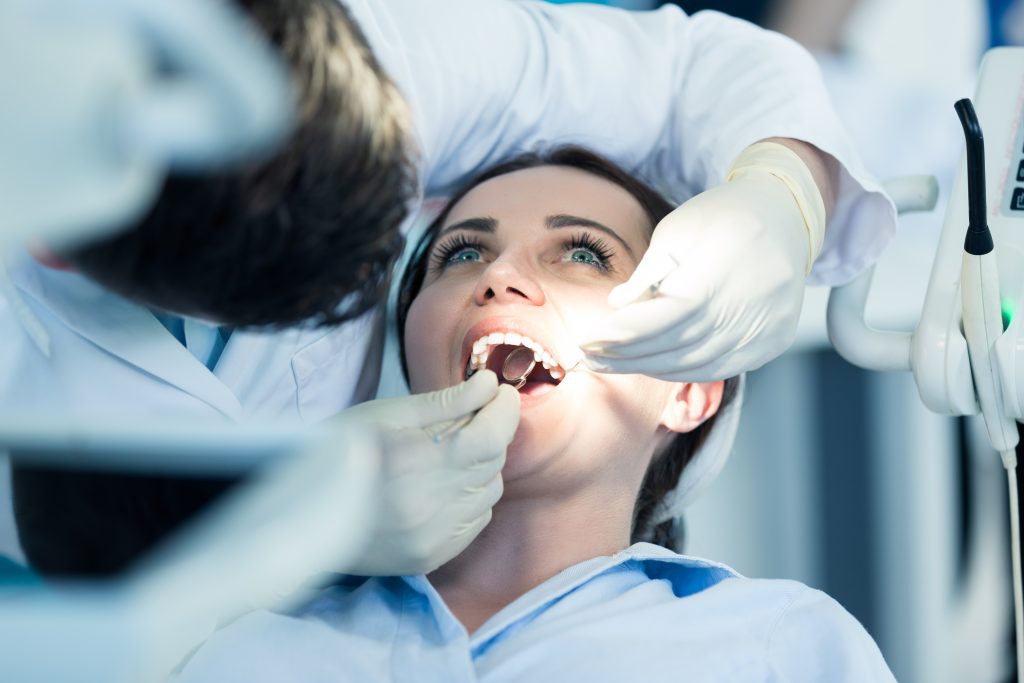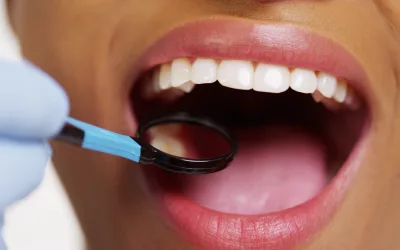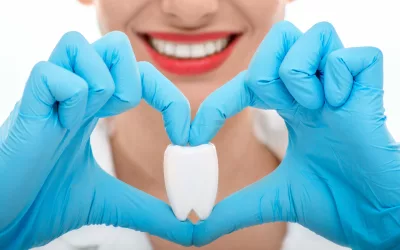
My gums are bleeding! Someone call a dentist!
You’re brushing your teeth before bed, you look down and notice blood in the sink after you’ve spit. You panic, check your mouth in the mirror and see where the blood is coming from, OMG, your gums are bleeding.
How can this be? you think to yourself, what can be causing this?
Well according to NHS Choices, a Majority of the UK adult population suffers from GUM DISEASE.
Bleeding gums can be an indication that you have or may have developed gum disease. Also, bleeding gums can also be a sign of a more serious medical condition.
So, what are the causes of bleeding gums, and what can gum disease lead to if not treated?
The main cause of bleeding gums is the accumulation of plaque at the gum line.
If regular flossing and brushing are neglected this can lead to a condition called gingivitis, or inflamed gums.
Plaque that is not removed hardens into tartar. This will lead to increased bleeding and a more advanced form of gum and jawbone disease known as periodontitis.
- There are however some other reasons why your gums may bleed:
- Brushing too hard
- Toothbrush bristles are too hard for your teeth and gums
- Improper flossing
- Ill-fitting dentures or other dental appliances
- Infection, which can be either in a tooth or the gum
- Any bleeding disorders
- Hormonal changes during pregnancy
- Leukaemia, a type of blood cancer
- Scurvy, a vitamin C deficiency
- Use of blood thinners
- Vitamin K deficiency
What’s the remedy, Dr. RDC?
Visit the Reigate Dental Centre at least once every 6 months for plaque removal.
Brush your teeth gently with a soft to medium bristle toothbrush at least twice a day. It is best if you can brush about 30 minutes after every meal.
Also, flossing teeth twice a day or after meals can prevent plaque from building up.
Try to rinse with salt water or a mouthwash designed to treat gum disease like Corsodyl. It may be best to avoid mouthwashes that contain alcohol, as they can make the problem worse.
It can help to follow a balanced, healthy diet. Try to avoid snacking between meals and cut down on the carbohydrates you eat.
Other tips to help with bleeding gums:
- Come see us for a periodontal exam.
- No smoking! it can make bleeding gums worse.
- If you have been diagnosed with a vitamin deficiency, speak to your GP and a nutritionist about good ways to increase your vitamin intake
- If the side effects of a medicine are causing the bleeding gums, ask your doctor to prescribe a different drug. Never change your medicine without first talking to your doctor.
- Talk to us if your dentures or other dental appliances do not fit well or are causing sore spots on your gums so we can help make them fit better!
Get in touch if:
- The bleeding is severe or long-term (chronic)
- Your gums continue to bleed even after treatment
- You have other unexplained symptoms with the bleeding
What to Expect on Your Visit to the Reigate Dental Centre
Your dentist will examine your teeth and gums and ask you about the problem. Your dentist will also ask about your oral care habits. You may also be asked about your diet and the medicines you take.
Tests that may be performed include:
- Blood studies such as a CBC (complete blood count) or blood differential
- X-rays of your teeth and jawbone
Alternative Names
Gingivitis, gum disease, sore gums, swollen gums, gums bleeding, receding gums, gum pain, inflamed gums, gum infection, gum sores, gum bleeding, sensitive gums, gums hurt, gum inflammation, gum swelling, painful gums, swollen gums, bleeding from gums, teeth bleeding
Share this:
- Click to share on Twitter (Opens in new window)
- Click to email a link to a friend (Opens in new window)
- Click to share on LinkedIn (Opens in new window)
- Click to share on Reddit (Opens in new window)
- Click to share on Tumblr (Opens in new window)
- Click to share on Pinterest (Opens in new window)
- Click to share on Pocket (Opens in new window)
- Click to share on Telegram (Opens in new window)
- Click to share on WhatsApp (Opens in new window)
Related
General Private Dental Prices
| Service | Price |
|---|---|
| Examination / Consultation | £70.00 |
| Scale and polish | from £70.00 |
| Dental hygiene appointment | £80.00 |
| X-ray | £15.00 |
| White filling | from £135.00 |
| Teeth whitening | £479.00 |
| Porcelain crown | from £650.00 |
| Veneers | from £695.50 |
| Dentures | from £850.50 |
| Root Canal Treatment | from £430.00 |
| Implant & Crown | from £2689.00 |
| Extraction | from £170.00 |
| Emergency Appointment | £130.00 |
Contact Us.
Hours & Info
09:00 - 17:00
Closed for lunch, 13:00 - 14:00
Categories
- Cosmetic Dentistry
- Dental Care Plans
- Dental Crowns and Bridges
- Dental Exams and Cleanings
- Dental Hygiene
- Dental Implants
- Dentures and Partial Dentures
- Emergency Dentistry
- Endodontics
- General
- General Dentistry
- Gum Disease Treatment
- health and wellbeing
- Invisalign
- NHS Dentist
- Save Money
- Teeth Whitening
- Tooth Extraction
- Toothache
- Toothpaste
To find out more, including how to control cookies, see here: Cookie Policy
Emergency?!
Is a dental emergency causing you pain or discomfort? Take action right away by contacting Reigate Dental Centre. Our office is open Monday through Saturday from 9 am to 5 pm. You can call us on 01737 224 870 or send us a message via the contact form below, and we’ll endeavour to respond as soon as possible.
Don’t wait with a dental emergency—the sooner you call and see us, the better. We’re committed to promptly treating any urgent dental issue with the highest-quality care and compassionately.


